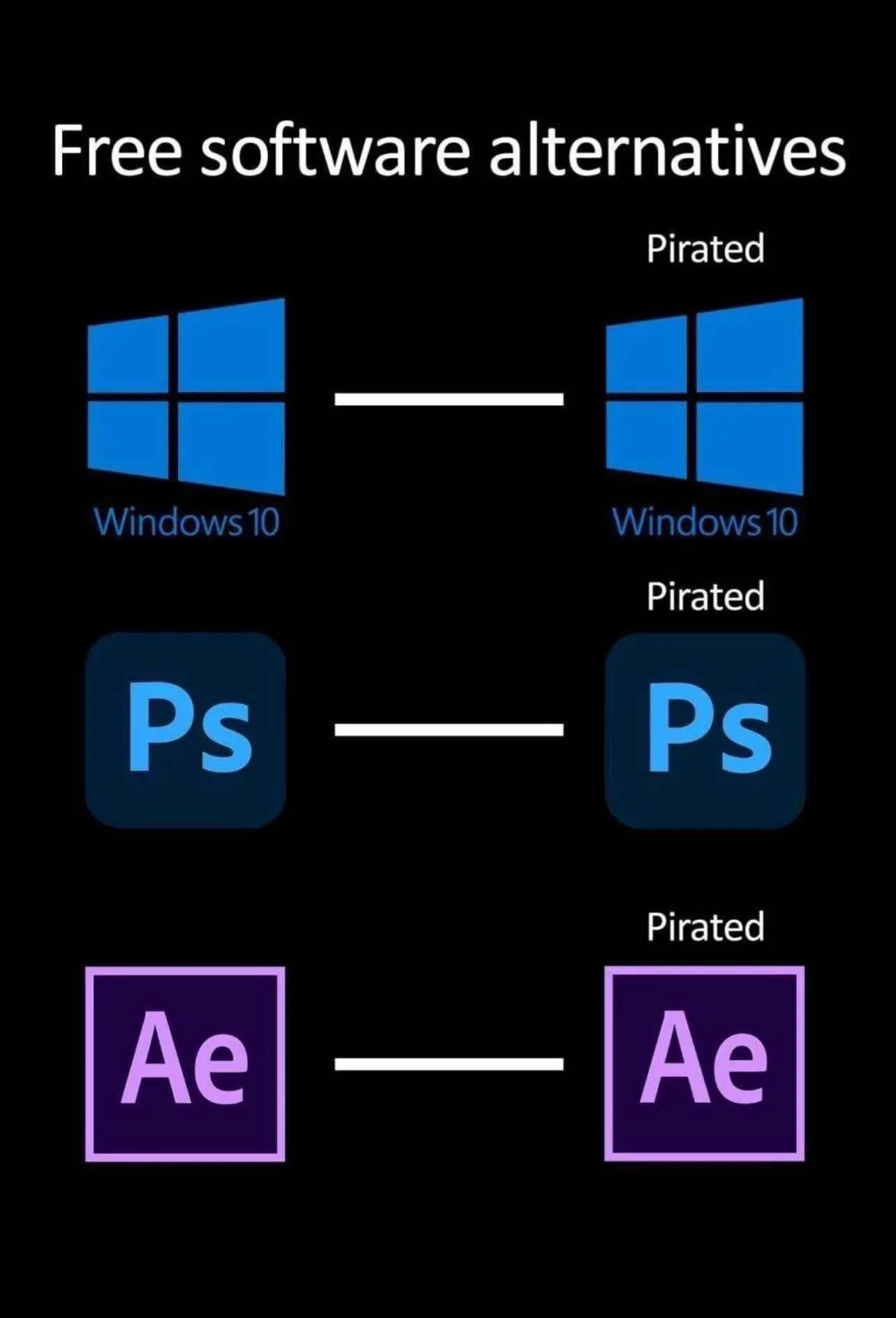this post was submitted on 09 Jul 2024
381 points (84.4% liked)
Piracy: ꜱᴀɪʟ ᴛʜᴇ ʜɪɢʜ ꜱᴇᴀꜱ
57305 readers
433 users here now
⚓ Dedicated to the discussion of digital piracy, including ethical problems and legal advancements.
Rules • Full Version
1. Posts must be related to the discussion of digital piracy
2. Don't request invites, trade, sell, or self-promote
3. Don't request or link to specific pirated titles, including DMs
4. Don't submit low-quality posts, be entitled, or harass others
Loot, Pillage, & Plunder
📜 c/Piracy Wiki (Community Edition):
🏴☠️ Other communities
Torrenting:
Gaming:
💰 Please help cover server costs.
 |
 |
|---|---|
| Ko-fi | Liberapay |
founded 2 years ago
MODERATORS
you are viewing a single comment's thread
view the rest of the comments
view the rest of the comments


Setting aside that doing so is already misleading, you clearly lack imagination if you cannot think of any feasible way for that to happen.
For example, consider a future where use of the phrase when advertising your product could result in legal issues. That isn’t too far-fetched.
They certainly can. A given meaning of a word is invalidated if it is no longer acceptable to use it in a given context for that meaning. In a medical context, for example, words become obsolete and unacceptable to use.
Likewise, it isn’t valid to say that your Aunt Edna is “hysterical” because she has epilepsy.
But more importantly, that’s all beside the point. Words don’t just have meaning in isolation - context matters. Phrases can have meanings that are different than just the sum of their parts, and saying a phrase but meaning something different won’t communicate what you meant. If you say something that doesn’t communicate what you meant, then obviously, what you said is incorrect.
“Free software” has an established meaning (try Googling it or looking it up on Wikipedia), and if you use it to mean something different, people will likely misunderstand you and/or correct you. They’re not wrong in this situation - you are.
That, or you’re trying to live life like a character from Airplane!:
That future isn't possible, because despite all you people lying to claim otherwise, there has never been any point where software exists and "free software" was not regularly used to refer to software that did not cost money, regardless of license. Every single App Store out there uses "free" to refer to propriety software today, because it's free.
Free software has multiple established meanings. There's a reason many are conceding their war on the English language and starting to refer to such software as "libre", not "free", and it's because there has never been any point where they actually dominated the term "free software" like they're lying and telling you they did.
“Free” as an adjective isn’t the issue. The issue is the phrase “free software” being used to refer to things other than free software. And afaict, no app store uses the term ”free software” to refer to non-free software.
The iOS App Store refers to “Free Apps.”
Google Play doesn’t call it “Free Software,” either; they just use it as a category / filter, e.g., “Top Free.”
Your conclusion is incorrect - this is because when used outside of the phrase “free software,” the word is ambiguous. “Software that is free” could mean gratis, libre, or both.